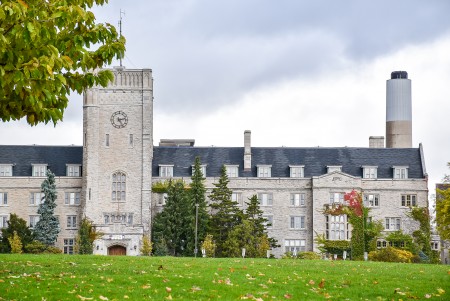 As Canada’s “food university,” the University of Guelph is applauding the federal government for investing in food and agriculture in the 2017 budget to grow Canada’s economy, said president Franco Vaccarino.
As Canada’s “food university,” the University of Guelph is applauding the federal government for investing in food and agriculture in the 2017 budget to grow Canada’s economy, said president Franco Vaccarino.
“We are delighted that the government is recognizing the role the agri-food sector plays in building Canada’s prosperity and its innovation prowess,” he said.
Vaccarino commended the government for committing $70 million to further support agricultural discovery, science and innovation, and for new funding to support the development and adoption of clean technology for agricultural production.
“Agri-food is a major engine of economic growth for Canada,” he said. “U of G, with our more than 150-year history in agri-food, is a natural fit for such initiatives.
“We look forward to participating and working with government and industry to help strengthen Canada’s position as a global agri-food leader.”
As part of the Toronto-Guelph-Waterloo innovation corridor, U of G also welcomes a $950-million, five-year investment in innovation “superclusters,” Vaccarino said. The funding is intended to enhance Canada’s global competitiveness in fields such as agri-food, clean technology, digital technology and health/biosciences by bringing together leading businesses and experts.
Other research and education budget highlights include:
- $125 million to launch a Pan-Canadian artificial intelligence strategy;
- up to $50 million for research and innovation; and
- $117.6 million for 25 new Canada 150 research chairs.
As well, the budget includes support for gender equity and the status of women, enhancements to Canada’s student loan program, initiatives to expand work-integrated learning and new strategies to attract international talent to Canada.
It also called for appointing a national chief science adviser, introducing an intellectual property strategy and reviewing all federal programs for indigenous students pursuing post-secondary education.
U of G looks forward to learning the results of that review, as well as the findings of the comprehensive science review, Vaccarino said, adding that the University hopes to be involved in developing the new agricultural policy framework to be launched in 2018.
Malcolm Campbell, vice-president (research), did a live interview with the Business News Network March 23 on the 2017 federal budget. He discussed how the government is encouraging innovation in agri-food, and how investing in the sector will promote economic growth.